HELP! My Cat is Trying to Kill Me Through Insomnia!
How often we compare our cats with our children, and really, the comparisons add up. We love them beyond compare, we are responsible for their well-being, we feed them, bathe them, take them to the doctor, and comfort them when they need our love.
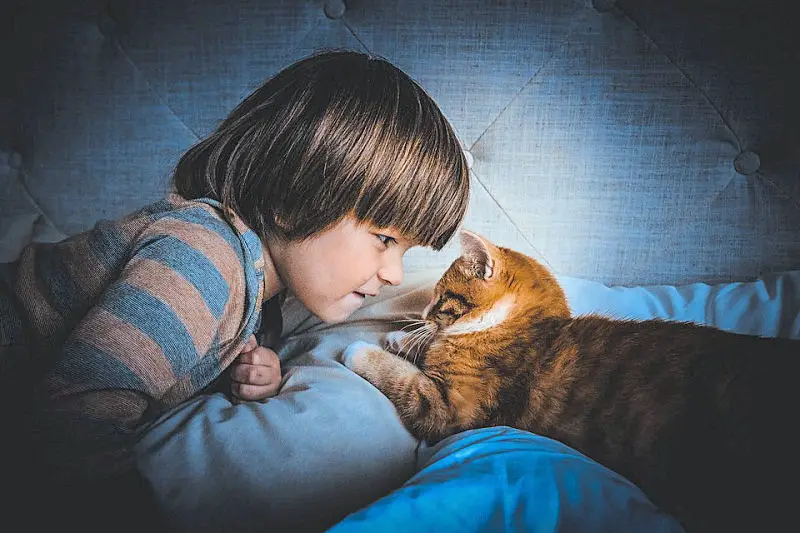
Oh. And sometimes, they go through phases that keep us awake all hours of the night. It’s true, much like humans, cats can get insomnia. Young cats {particularly those under one year of age} have been known to drive their owners crazy from sleep deprivation. Remember that our cat’s ancestor is the African wildcat, and these big cats are mostly nocturnal. So there’s a lot of natural instinct in our little fur babies but the good news is that cats can learn to let their owners sleep in peace.
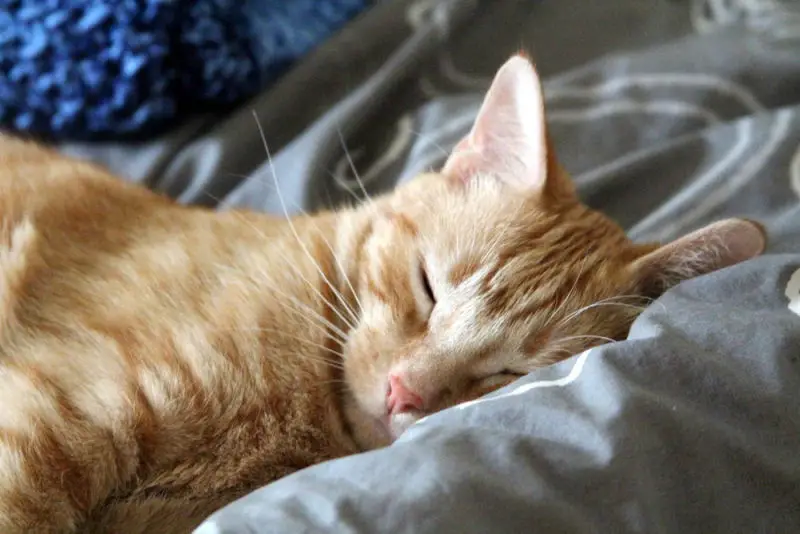
The unmistakable yowling and wailing of a cat in distress is nearly impossible to sleep through for even the heaviest of sleepers. And much like humans, cats are generally looking for a need to be met and can be taught to self soothe in order to regain a normal sleep pattern. Do not despair, parent of a frustrated furry family member, hope lies in these pages.
Following are 5 tips that can help:
#1: Get thee to the vet!
The very first thing to do is bring your cat to their vet for a checkup. Much like a baby, cats do not have the ability to tell you with words if there is a medical problem. They can, however, vocalize.
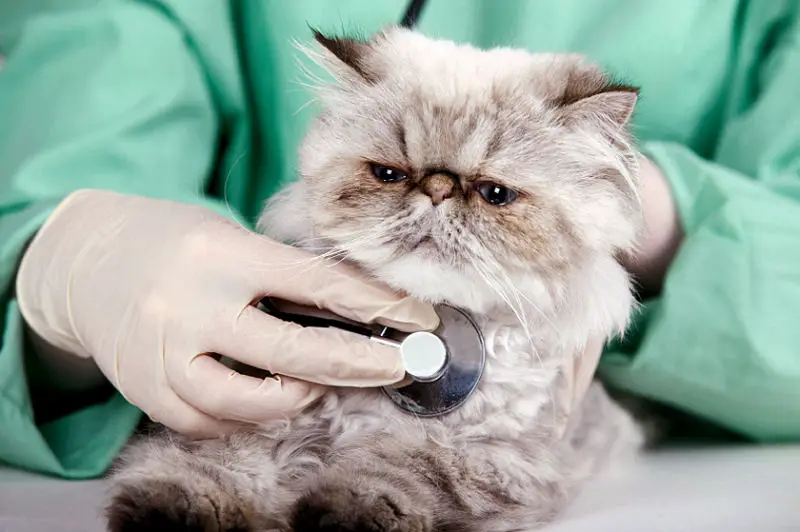
There can be many medical reasons your cat is vocalizing at all hours of the night, thyroid disease, hearing loss, or cognitive dysfunction being just a few of them. Once you rule out a medical condition, then you can start to address the potential root causes of the behavioral condition that needs attention.
#2. Let me entertain you.
We’ve all heard it before: Children who are bored in class are more likely to show behavioral problems. Cats are supremely smart animals, and do exactly the same thing. If your cat is not mentally stimulated, they will seek negative attention in order to have that need met.
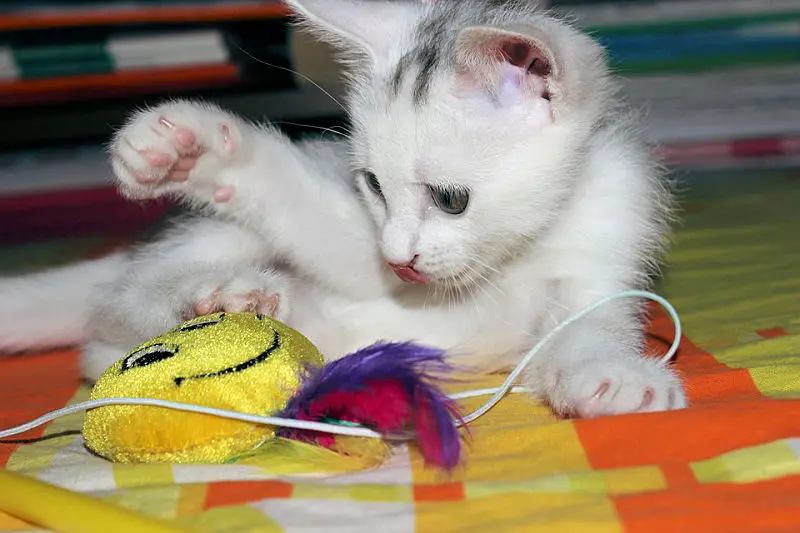
Provide your cat with many opportunities to stimulate their mind and body. Toys, scratching posts, jungle gyms, and even cognitive games. (Yes, they make those for cats and they are incredibly effective.) It is important to not just wear out their body, but their mind.
#3. Cry it out.
Just like the exhausted parent doesn’t want to hear their baby crying uncontrollably and swoops in to comfort their child, the parent of a furry child doesn’t want to hear their cat suffering and quickly moves to soothe them. Without doubt, there are times when you must comfort your cat, but you are doing them no favors by not teaching them to self soothe.
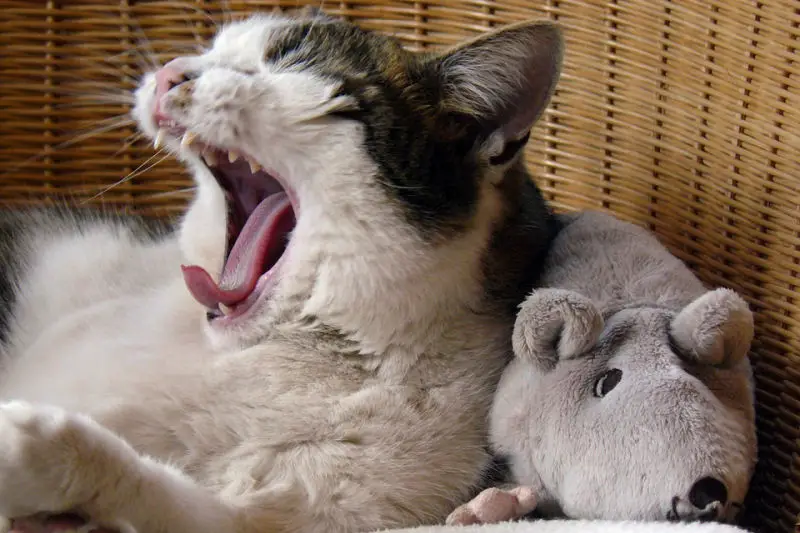
Night vocalization can often be a call for attention, and for every time you wake up to soothe your cat, you are reinforcing that behavior, leading to more and more vocalization. Behavior modification is needed on both ends of this spectrum: Your can needs to learn to self soothe at night and you need to learn to let your cat cry it out. Eventually they’ll find their zzzzzzzzz…
#4. Celebrate the good.
Ending the undesirable behavior is only half of the puzzle. Behavior modification is a two part endeavor. The first part is disrupting the bad behavior, and the second part is reinforcing a more desirable behavior. What does this mean? Catch your cat being good. If your cat is vocalizing for attention, then be sure to smother them with attention when they’re being quiet and non-disruptive.

Give them the attention they’re seeking during the day and when they’re behaving in a positive way. This reinforcement will pave the way to replace the night vocalizations with day time cuddles. Replace the old habits with better habits.
#5. Wear them out!
Cats and kids both learn through play, and they develop a bond and happiness through playtime with their parent. One of the best times to play is right before bed, not only does it provide your cat with the attention they’re seeking and craving, but it also wears them out.
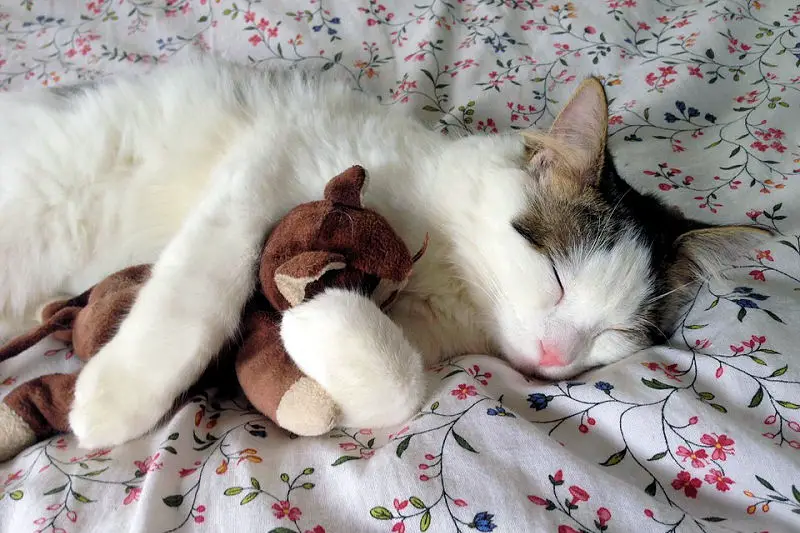
With a consistent and regular nightly bonding time, your cat might start reducing their night vocalizations almost immediately. One method of playing with your cat is to mimic hunting. Get a toy mouse or a feather and allow your cat to get their predatory instincts out, and make way for a good night rest for both of you.
The key is to be consistent, and realize that in order to change the behavior, you will also need to change your behavior. If you do, you’ll both be sleeping like kittens in no time.
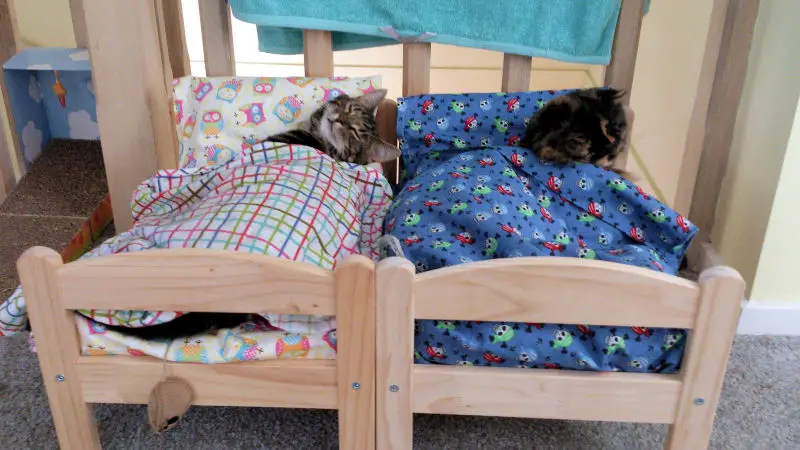
Here’s a cool little infographic from Cat Fancy Magazine and the Cat Channel that offers a few other clever suggestions. Well worth a read.

Here’s to a great night’s sleep!




aha – you’ve met my cat Luther – he’s a terror at night. Sleeps all day and then makes a ruckus every night.
I have a soon-to-be 18 year male cat who I’ve had since he was born (he was born at my back door).I then took his mother and two sisters in. Mother died some years ago with diabetes and his sisters died around a year ago; one with breast cancer and the other with congestive heart failure. They lived with my daughter. Sno has been yowling day and night for a year and was diagnosed with kidney failure. I have taken him out to the vet every week where he is given “water” through his skin and special cat food. He has gotten into the habit of crying or “yowling” every two or so hours. I get up and feed him and then go back two bed and try to rest for awhile. Sometimes it is every 3 times a night, but often it is 5 times. I am always tired and luckily can take a nap through the day. Is there any way to get him to sleep every nights? I have 4 other cats but, although they get up, they do not wake us.
Ha! Just saw last comment – we have a Bengal named ‘Lex” – he’s also a very busy boy at nite. Together with Chrissy cat they’d be Lex Luther! 🙂
I have had 5 Maine Coon darlings in my lifetime and when one goes over Rainbow Bridge When grieving is over O rescue another. This is my first male. I keep thinking the one I have is the sweetest but I have to say Checkerboard (present boy of 9 yrs.) is the most loving snf demanding
Thanks for such a great post! Muffin Seede Bebe and I play catch all day with a good, hard session right before bed time. She usually tells me when she’s done playing for the moment and when she wants to play, she brings me her toy. When she’s done for the evening, she’ll beat me to the bed, and boy, do I get “chewed out” if she doesn’t get her “required” amount of play time in! But, I wouldn’t trade any of this playtime away for anything in the world – I think people who have furbabies in their lives are the lucky ones. That is if you don’t mind being the “pet”! LOL They give so much and ask for so little; it’s always amazed me that the beautys that I’ve had the honor, privilege, and pleasure of sharing my life with picked me to stay with all the years they did. i miss them.
I have a Savannah cat now. stayed up all night when having teeth. the hardest period of a catlife I think. you can sew a bag with lavender to your cat to calm it. I used to carry mine around in my arms at night:) to 7-8 month. now she’s ca 11 old and have different attitude. Savannah cat is origin from serval wildcat and oriental/bengal etc. she loves to ride on my shoulder. I am her taxi around the house;) joy is her name so she is my catpaws4joy .